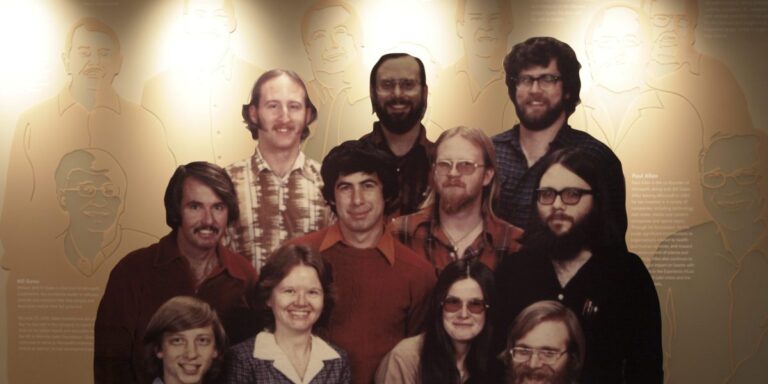Assad’s Syrian stronghold prepares for life after the regime
On a recent morning in Syria’s Latakia province, more than a hundred former soldiers stood silent, wide-eyed and wary as they waited to register with the country’s new rebel rulers. on: Everyone is obliged.
Since taking power this month, the new interim government, led by the Islamist rebel group Hayat Tahrir al-Sham, has set up several of these so-called settlement centers across the country, urging ex-soldiers to visit, register. military certificates and surrender weapons.
They say such initiatives will help ensure security and start a reconciliation process after 13 years of brutal civil war that has left the country riddled with weapons and armed groups.
“The most important thing is to disarm people,” said Abdel Rahman Traifi, a former rebel who now runs the center. “That’s the only way you can guarantee security.”

However, many in Latakia, the Assad dynasty’s home province and one-time stronghold, fear that power will mark the start of something more sinister: a cycle of dispossession and retribution that will leave them as losers in a new era. Syria.
Despite the widespread jubilation across the country, coastal Latakia is home to many from Assad’s minority Alawite sect and others who, whether by choice or desperation, made up the soldiers and loyalists who helped prop up the family’s ruthless minority rule.
In the weeks since Assad’s ouster, some have closed shops, stayed at home or gone into hiding amid a security vacuum and revenge killings and attacks on minorities.
“I didn’t dare to go because I was worried about the roads,” says one of the former Alawite security officers about the settlements. “They will either kill us on the road or in our villages.”
So far there has been little documentation of retaliatory violence, with the new authorities dismissing the reports as “isolated incidents.” Responding to reports of men harassing Alawis at checkpoints and asking them to curse at the former president, Traifi said the worries do not represent the new government.
“But there are people who run the guard posts who lost children, women, family members as a result of bombings and battles, whose friends disappeared in the prison. There is pain in their hearts,” he said. “We have endured them for 14 years. They can put up with us a little bit.”
Some soldiers lined up in the residential center of Latakia appeared to be cautiously welcoming the prospect of a fresh start, a sign of how disillusioned even nominal loyalists are.
One 29-year-old ex-soldier said he had been repeatedly denied leave to visit his home over the past year, as Assad’s weakening grip on the country and its faltering economy led to growing fears of soldiers deserting.
“Our life was the army, we didn’t learn anything else,” he said, adding that he is not worried about security. “We wanted it for a long time. In this new phase, they just want us to live our lives.”
Still, Traifi said only 30 percent of those arriving in the settlements surrender their weapons, adding that the intelligence unit is working to identify and attack those who are still holding hands that without comprehensive disarmament, “we will have carnage within two months.”
Before Bashar al-Assad’s father, Hafez, came to power in 1970, the Alawis were among the poorest groups in Syrian society; families sent their daughters to clean houses in the big cities and their sons to the military to provide them with food and a steady income.
But during his rule, the Assad family elevated a select group of Alawite loyalists to positions of authority, offering them preferential treatment over others.Resentment of the brutal use to ensure they have disproportionate wealth, power and political status was a key driver of the 2011 protests. was the force that led to the civil war.
But on the eve of Assad’s ouster, with many of those Alawis now facing an uncertain future, thousands fled the capital Damascus for their ancestral homes.
The former state security official said he got a call from his superior around midnight, who told him to pack up and go home. He described apocalyptic scenes. civilians and tired men filled the streets on foot and in cars, their abandoned weapons strewn on the side of the road. “I parked on the right side of the road on the way to Homs and threw my gun into the waterway,” he said.
The two-hour journey to his village on the border with Lebanon took about eight hours. Then he took shelter at home, realizing that the men from his village who had been exiled to Lebanon after joining the rebels were now returning were going to take revenge against those they accused of slaughtering their friends and family.
“There’s no control or security here, so there’s no stopping the revenge killings,” he said. “There’s just nobody here.”
After the overthrow of Assad, there is a tense silence in the air of Alawite villages and cities. Schools are open, but empty. When asked if someone is doing surgery, the employee of the area said: “Yes, there is a shortage of students.”
In Qardaha, the birthplace of the Assad clan, unlike in larger cities, the green rebel flag was almost nowhere to be found. The inside of Hafez al-Assad’s mausoleum was covered in soot from a fire at his resting place, while slurs against him and his wife were painted on the outside.
Such attacks on the tomb have become “a kind of pilgrimage” for rebel supporters, one resident said.


But the Alawite elite who benefited from Assad’s rule were a minority within a minority.Other members of the wider Alawite community remained among the poorest in Syrian society, many terrorized by the same people who committed crimes against the rest of the country.
A 40-year-old Alawi resident of Kardaha, who asked to be known only by her nickname Nana to avoid retaliation, told how the townspeople lived their whole lives in fear of their masters, who abused and treated their sect members with contempt. .
“They wanted us to stay [poor] so that people continue to be drafted,” said Nana.
Nana and her sister taught in schools where children could not afford the meager price of public textbooks, while her brother-in-law had spent the last 14 years avoiding military service.
Yet despite their disillusionment with the Assads, minorities such as the Alawites and Christians fear not only for their own safety, but also that the new rulers will impose a new and unfamiliar social order.
Nana’s family makes and sells alcoholic beverages, including arrack and wine, which were off-limits under the Assads, and like many others, they borrowed money to stock up for December, the busiest time of the year.But when they woke up to the news that Assad regime fell to the Islamist HTS, the family went to collect their supplies and remove the store’s sign as a precaution.
When Nana’s husband later asked the gunman guarding the town if he could reopen, he was told that selling alcohol is forbidden in Islam.The family, like others, is waiting for clarity from the new government about what is legal and what is not.
“We bought stock like crazy and now it’s going to sit in our stores,” her brother-in-law said, adding that his niece was told by another patrolman for wearing pajamas outside.
Although they had suffered “humiliations” under the Assads, he said, they at least knew how to behave under the regime. “Now we don’t know what [kind of regime] we have,” said Nana.
Cartography by Aditi Bhandari







